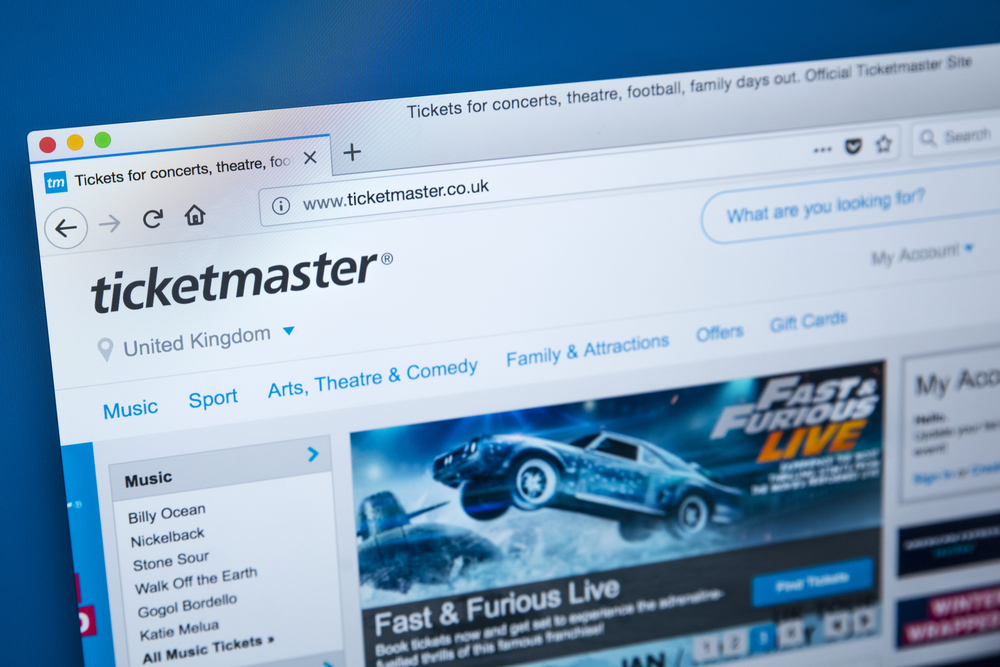
The Oasis ticket controversy dominated the headlines in August 2024 due to Ticketmaster incorporating ‘in demand’ or ‘dynamic’ pricing, which meant ticket prices were increased to match demand. This saw the cost of tickets skyrocket as fans were waiting in online queues.
The Competition and Markets Authority (CMA) last week ruled that Ticketmaster’s Oasis ticket sale could have breached consumer law and said it was consulting with the firm on improvements to its practices.
Which? said the CMA must make sure fans are refunded the difference between the advertised ticket price and what they paid – otherwise it warned that fans could take Ticketmaster to court to get their money back.
Calls for the Government to fix the ‘broken ticket industry’
More generally, Which? is urging the Government to stop online touts and tighten rules on dynamic pricing.
Ticket sales for major acts like Oasis, Taylor Swift and Beyoncé have thrown the ticketing industry into the spotlight over the past year. Fans have been forced to battle misleading pricing, ticket touts and scammers to secure tickets to popular events.

Why Life Insurance Still Matters – Even During a Cost-of-Living Crisis
Sponsored by Post Office
The Government has pledged to introduce stronger consumer protections for ticket purchases and is currently consulting on changes to ticket resales and dynamic pricing.
More than 4,000 people were surveyed by Which? in March 2025 to find out more about their experience of secondary ticketing sites. Four in 10 (43%) said they had concerns about buying tickets on secondary sites – for example, that the ticket might be fake, a scam or not valid.
These concerns are validated by the number of fans who experienced issues with secondary sites. One in 10 (10%) people who bought tickets online said they purchased them on secondary ticketing websites such as Viagogo and StubHub.
One-fifth (21%) of those who bought tickets through secondary sites or social media experienced an issue. Worryingly, six in 10 (60%) of those who experienced issues with their ticket never made it to the event – they were refused entry at the venue or their ticket was either fake, invalid, or never arrived. Three in 10 (30%) said they were charged additional fees at the venue.
Nearly three in 10 (28%) did not believe they paid a reasonable price for their tickets bought on secondary websites. About a fifth (19%) didn’t think the total price – including fees – was transparent when using a secondary site.
Would you pay £23,899 to see Beyoncé?
Tickets were listed for all of Beyoncé’s six UK dates on both StubHub International and Viagogo the day before the tour’s general sale, according to the consumer champion.
On Viagogo, the tickets were listed for between £118 and £2,961, while on StubHub International, the highest price was a staggering £23,899.
According to Ticketmaster (the tour’s official ticket platform), the face value cost of tickets was from £71.60 to £950.
Which? believes there are several steps the Government should take to make live event ticketing fairer and more affordable for consumers.
It said the Government must take action to shut down online ticket touts by introducing a price cap to ensure that tickets can only be resold on secondary sites at the original price paid.
The organisation also believes that resale platforms should be required by law to verify that the seller owns a ticket before it can be listed on the site and should also verify key information about a ticket, such as the original price and location within the venue.
They should also be responsible for preventing the resale of tickets when the primary seller has prohibited resale.
Which? also suggested Government should tighten the rules on dynamic pricing – by banning the practice being used to increase the price of tickets during the transaction process.
‘Uphill battle against misleading pricing’
Rocio Concha, Which?’s director of policy and advocacy, said: “Music, sport and theatre fans currently face an uphill battle against misleading pricing, ticket touts and scammers to secure tickets to popular events.
“The Government must fix the broken ticketing industry and ensure consumers can buy tickets online without worrying about ticket touts or that prices could rise unexpectedly during the checkout process.
“Which? is calling for the Government to stop online touts by introducing a price cap to ensure that tickets can only be resold on secondary sites at the original price. Ministers should also ban dynamic pricing being used to increase prices during the checkout process – and ensure that there is an effective enforcement regime in place to make sure businesses stick to the rules.”




